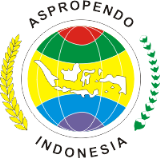INTEGRATING ONLINE AND OFFLINE LEARNING IN ENTREPRENEURSHIP EDUCATION: AI’S ROLE IN REDUCING REGIONAL DISPARITIES
DOI:
https://doi.org/10.23917/jpis.v35i1.6933Abstract
This study aims to describe the impact of learning methods in online and offline entrepreneurship learning for Indonesian students with the constraint of regional disparities in accessing learning. Many online learning platforms have been widely used in recent years due to its benefits such as flexibility and accessibility. However, offline learning is more preferable for hands on skills development in entrepreneurship learning. In this study, we use quantitative methods approach by applying Chi-Square Analysis and the Wilcoxon SignedRank Test to analyse the data of the experiment which has been conducted by collecting the data of 172 students in 4 development regions of Indonesia. Although the learning methods in online have been increasingly popular, the result of this study shows that most of the students more prefer offline learning methods because of its interactive and hands on experience. The result of this study can be a reference for policymakers and educational institutes about the importance of both learning methods even how we can overcome the problem of connectivity in offline learning in various regions so that the entrepreneurial learning can be equally accessed by Indonesian students. In addition, this study also discusses the opportunity of Generative Artificial Intelligence (Gen-AI) in entrepreneurship education for achieving the learning environment which is inclusive and promote equality among students.
Downloads
References
Abou-Khalil, V., Helou, S., Khalifé, E., Chen, M. A., Majumdar, R., & Ogata, H. (2021). Emergency Online Learning in Low-Resource Settings: Effective Student Engagement Strategies. Education Sciences, 11(1), 24. https://doi.org/10.3390/educsci11010024.
Achmad, & Prayitno, G. (2020). Regional Disparity in Western and Eastern Indonesia. International Journal of Economics and Business Administration, VIII(Issue 4), 101–110. https://doi.org/10.35808/ijeba/572.
Alqahtani, M. M. (2023). Artificial Intelligence and Entrepreneurship Education: A Paradigm in Qatari Higher Education Institutions After Covid-19 Pandemic. International Journal of Data and Network Science, 7(2), 695–706. https://doi.org/10.5267/j.ijdns.2023.3.002.
Amalia, R. T., & von Korflesch, H. F. O. (2021). Entrepreneurship Education in Indonesian Higher Education: Mapping Literature from the Country’s Perspective. Entrepreneurship Education, 4(3), 291–333. https://doi.org/10.1007/s41959-021-00053-9.
Azzizah, Y. (2015). Socio-Economic Factors on Indonesia Education Disparity. International Education Studies, 8(12), 218-230. https://doi.org/10.5539/ies.v8n12p218.
Chen, L., Chen, P., & Lin, Z. (2020). Artificial Intelligence in Education: A Review. IEEE Access, 8, 75264–75278. https://doi.org/10.1109/ACCESS.2020.2988510.
Chen, L., Ifenthaler, D., Yau, J. Y. K., & Sun, W. (2024). Artificial Intelligence in Entrepreneurship Education: A Scoping Review. Education and Training. https://doi.org/10.1108/ET-05-2023-0169.
Chen, L., Ifenthaler, D., & Yau, J. Y.-K. (2021). Online and Blended Entrepreneurship Education: A Systematic Review of Applied Educational Technologies. Entrepreneurship Education, 4(2), 191–232. https://doi.org/10.1007/s41959-021-00047-7.
Colombelli, A., Panelli, A., & Serraino, F. (2022). A Learning-by-Doing Approach to Entrepreneurship Education: Evidence from a Short Intensive Online International Program. Administrative Sciences, 12(1), 16. https://doi.org/10.3390/admsci12010016.
Coomans, F. (2022). SDG 4: Ensure Inclusive and Equitable Quality Education and Promote Lifelong Learning Opportunities for All. In The Cambridge Handbook of the Sustainable Development Goals and International Law (pp. 117–139). Cambridge University Press. https://doi.org/10.1017/9781108769631.006.
Cooney, T. M., & Brophy, M. (2023). Entrepreneurial Competencies in Action: Online Fundraising Initiatives by University Students. Entrepreneurship Education and Pedagogy, 6(4), 721–737. https://doi.org/10.1177/25151274231183384.
Dabbous, A., & Boustani, N. M. (2023). Digital Explosion and Entrepreneurship Education: Impact on Promoting Entrepreneurial Intention for Business Students. Journal of Risk and Financial Management, 16(1), 27. https://doi.org/10.3390/jrfm16010027.
Fox, J. D., Pittaway, L., & Uzuegbunam, I. (2025). Artificial Intelligence as a Dynamic Copilot in Entrepreneurship Education. Entrepreneurship Education and Pedagogy, 8(2), 329–344. https://doi.org/10.1177/25151274241256307.
Gabrielsson, J., Hägg, G., Landström, H., & Politis, D. (2020). Connecting the Past with the Present: The Development of Research on Pedagogy in Entrepreneurial Education. Education + Training, 62(9), 1061–1086. https://doi.org/10.1108/ET-11-2019-0265.
Gibb, A. (2002). Creating Conducive Environments for Learning and Entrepreneurship. Industry and Higher Education, 16(3), 135–148. https://doi.org/10.5367/000000002101296234.
Gibbings, P., Lidstone, J., & Bruce, C. (2015). Students’ Experience of Problem-Based Learning in Virtual Space. Higher Education Research & Development, 34(1), 74–88. https://doi.org/10.1080/07294360.2014.934327.
Giuggioli, G., & Pellegrini, M. M. (2023). Artificial Intelligence as an Enabler for Entrepreneurs: A Systematic Literature Review and an Agenda for Future Research. International Journal of Entrepreneurial Behavior & Research, 29(4), 816–837. https://doi.org/10.1108/IJEBR-05-2021-0426.
Hägg, G., & Kurczewska, A. (2020). Towards a Learning Philosophy Based on Experience in Entrepreneurship Education. Entrepreneurship Education and Pedagogy, 3(2), 129–153. https://doi.org/10.1177/2515127420910679.
Hamburg, I. (2021). Approaches to Support Disruptive Innovations Within Entrepreneurship Education. Proceedings of the International Conference on Business Excellence, 15(1), 584–590. https://doi.org/10.2478/picbe-2021-0054.
Hooda, M., Rana, C., Dahiya, O., Rizwan, A., & Hossain, M. S. (2022). Artificial Intelligence for Assessment and Feedback to Enhance Student Success in Higher Education. Mathematical Problems in Engineering, 2022, 1–19. https://doi.org/10.1155/2022/5215722.
Ikmal, I., Halim, A., & Rusli, T. I. (2021). Using Youtube Videos to Enhance Students’ Creativity on FLTM Class. Metacommunication: Journal of Communication Studies, 6(1), 1. https://doi.org/10.20527/mc.v6i1.9715.
Karjo, C. H. (2020). Fostering the Use of Social Media towards Students’ Learning. Journal of Physics: Conference Series, 1477(4), 042011. https://doi.org/10.1088/1742-6596/1477/4/042011.
Kashinath, K., & Raju, R. L. N. (2023). An Empirical Research on the Effectiveness Online and Offline Classes of English Language Learning Based on Student’s Perception in Telangana Schools. International Journal of Modern Education and Computer Science, 15(2), 40–53. https://doi.org/10.5815/ijmecs.2023.02.04.
Kassean, H., Vanevenhoven, J., Liguori, E., & Winkel, D. E. (2015). Entrepreneurship Education: A Need for Reflection, Real-World Experience and Action. International Journal of Entrepreneurial Behavior & Research, 21(5), 690–708. https://doi.org/10.1108/IJEBR-07-2014-0123.
Konak, A., Kulturel-Konak, S., & Cheung, G. W. (2019). Teamwork Attitudes, Interest and Self-Efficacy Between Online and Face-To-Face Information Technology Students. Team Performance Management: An International Journal, 25(5/6), 253–278. https://doi.org/10.1108/TPM-05-2018-0035.
Liguori, E., & Winkler, C. (2020a). From Offline to Online: Challenges and Opportunities for Entrepreneurship Education Following the COVID-19 Pandemic. Entrepreneurship Education and Pedagogy, 3(4), 346–351. https://doi.org/10.1177/2515127420916738.
Liguori, E., & Winkler, C. (2020b). From Offline to Online: Challenges and Opportunities for Entrepreneurship Education Following the COVID-19 Pandemic. Entrepreneurship Education and Pedagogy, 3(4), 346–351. https://doi.org/10.1177/2515127420916738.
Luaran, J., Nawi, N. S. M., Nadzri, F. A., & Rom, K. B. M. (2013). Internet Dependency in Completing Academic Assessment: A Study on UiTM TESL Students. Procedia - Social and Behavioral Sciences, 90, 196–202. https://doi.org/10.1016/j.sbspro.2013.07.082.
Maghsudi, S., Lan, A., Xu, J., & van der Schaar, M. (2021). Personalized Education in the Artificial Intelligence Era: What to Expect Next. IEEE Signal Processing Magazine, 38(3), 37–50. https://doi.org/10.1109/MSP.2021.3055032.
Magomadov, V. S. (2020). The Application of Artificial Intelligence and Big Data Analytics in Personalized Learning. Journal of Physics: Conference Series, 1691(1), 012169. https://doi.org/10.1088/1742-6596/1691/1/012169.
Maspaeni, Muslim, S., & Ibrahim, N. (2022). Improving Course Learning Outcomes Object-Oriented Programming through Blended Learning. International Journal of Information and Education Technology, 12(8), 704–711. https://doi.org/10.18178/ijiet.2022.12.8.1674.
McCrea, E. A. (2013). Adding to the Pedagogical Portfolio: Launching A Student Business in a Semester Course. New England Journal of Entrepreneurship, 16(1), 31–39. https://doi.org/10.1108/NEJE-16-01-2013-B003.
Mets, T., Trabskaia, I., Raudsaar, M., & Kozlinska, I. (2023). New Perspectives on Entrepreneurship Education: Introduction. Administrative Sciences, 13. https://doi.org/10.3390/admsci13010013.
Mintzes, J. J. (2020). From Constructivism to Active Learning in College Science. In Active Learning in College Science (pp. 3–12). Springer International Publishing. https://doi.org/10.1007/978-3-030-33600-4_1.
Nabi, G., Liñán, F., Fayolle, A., Krueger, N., & Walmsley, A. (2017). The Impact of Entrepreneurship Education in Higher Education: A Systematic Review and Research Agenda. Academy of Management Learning & Education, 16(2), 277–299.
Palvia, S., Aeron, P., Gupta, P., Mahapatra, D., Parida, R., Rosner, R., & Sindhi, S. (2018). Online Education: Worldwide Status, Challenges, Trends, and Implications. Journal of Global Information Technology Management, 21(4), 233–241. https://doi.org/10.1080/1097198X.2018.1542262.
Qalati, S. A., Ostic, D., Sulaiman, M. A. B. A., Gopang, A. A., & Khan, A. (2022). Social Media and SMEs’ Performance in Developing Countries: Effects of Technological-Organizational-Environmental Factors on the Adoption of Social Media. Sage Open, 12(2). https://doi.org/10.1177/21582440221094594.
Rahman, H. (2020). Exploring the Students’ Attitudes toward Internet Usage for Academic Excellence. The International Technology Management Review, 9(1), 58. https://doi.org/10.2991/itmr.k.200810.001.
Renz, A., & Hilbig, R. (2020). Prerequisites for Artificial Intelligence in Further Education: Identification of Drivers, Barriers, and Business Models of Educational Technology Companies. International Journal of Educational Technology in Higher Education, 17(1), 14. https://doi.org/10.1186/s41239-020-00193-3.
Rohaetin, S. (2020). Strategy of Entrepreneurship Education Based on Digital Technology for Students in the World Working in Indonesia. Jurnal Inovasi Ilmu Sosial Dan Politik, 2(1), 31. https://doi.org/10.33474/jisop.v2i1.5041.
Saptono, A., Wibowo, A., Narmaditya, B. S., Karyaningsih, R. P. D., & Yanto, H. (2020). Does Entrepreneurial Education Matter for Indonesian Students’ Entrepreneurial Preparation: The Mediating Role of Entrepreneurial Mindset and Knowledge. Cogent Education, 7(1), 1836728. https://doi.org/10.1080/2331186X.2020.1836728.
Schou, P. K., Bucher, E., & Waldkirch, M. (2022). Entrepreneurial Learning in Online Communities. Small Business Economics, 1–22.
Scott, J. M., Penaluna, A., & Thompson, J. L. (2016). A Critical Perspective on Learning Outcomes and The Effectiveness of Experiential Approaches in Entrepreneurship Education. Education + Training, 58(1), 82–93. https://doi.org/10.1108/ET-06-2014-0063.
Shabrina, F., Santoso, A. D., & Alfanisa, E. W. (2019). Are We Ready for Technopreneurship. International Journal of Smart Technology and Learning, 1(2), 188. https://doi.org/10.1504/IJSMARTTL.2019.097969.
Susanto, H., Fang Yie, L., Mohiddin, F., Rahman Setiawan, A. A., Haghi, P. K., & Setiana, D. (2021). Revealing Social Media Phenomenon in Time of COVID-19 Pandemic for Boosting Start-Up Businesses through Digital Ecosystem. Applied System Innovation, 4(1), 6. https://doi.org/10.3390/asi4010006.
Turan, Z., & Karabey, S. C. (2023). The Use of Immersive Technologies in Distance Education: A Systematic Review. Education and Information Technologies, 28(12), 16041–16064. https://doi.org/10.1007/s10639-023-11849-8.
Vecchiarini, M., Muldoon, J., Smith, D., & Boling, R. J. (2024). Experiential Learning in an Online Setting: How Entrepreneurship Education Changed During the COVID-19 Pandemic. Entrepreneurship Education and Pedagogy, 7(2), 190–217. https://doi.org/10.1177/25151274231179194.
Warschauer, M., & Xu, Y. (2018). Technology and Equity in Education (pp. 1063–1079). Second Handbook of Information Technology in Primary and Secondary Education. Springer International Handbooks of Education. Springer, Cham. https://doi.org/10.1007/978-3-319-71054-9_76.
Winkler, C., Hammoda, B., Noyes, E., & Van Gelderen, M. (2023). Entrepreneurship Education at the Dawn of Generative Artificial Intelligence. Entrepreneurship Education and Pedagogy, 6(4), 579–589. https://doi.org/10.1177/25151274231198799.
Xhafa, V. H. (2021). Perceptions of Students for Sudden Movement from Face-toFace Teaching to Online Learning Environment: A Regional Study in Conditions Affected by the COVID-19 Pandemic. European Journal of Education, 4(2), 62–77. https://doi.org/10.26417/199oxb62g.
Yusoff, M. N. H. Bin, Zainol, F. A., & Ibrahim, M. D. Bin. (2014). Entrepreneurship Education in Malaysia’s Public Institutions of Higher Learning—A Review of the Current Practices. International Education Studies, 8(1). https://doi.org/10.5539/ies.v8n1p17.
Zhang, J., & Price, A. (2020). Developing the Enterprise Educators’ Mindset to Change the Teaching Methodology: The Case of Creating Entrepreneurial Outcomes (CEO) Programme. Entrepreneurship Education, 3(3), 339–361. https://doi.org/10.1007/s41959-020-00037-1.
Zhang, Z. (2021). The Impact of Digital Technologies on Entrepreneurship Education. In 2021 6th International Conference on Social Sciences and Economic Development (ICSSED 2021) (pp. 448-452). Atlantis Press. https://doi.org/10.2991/assehr.k.210407.088.
Downloads
Submitted
Accepted
Published
Issue
Section
License
Copyright (c) 2025 Jurnal Pendidikan Ilmu Sosial

This work is licensed under a Creative Commons Attribution 4.0 International License.













